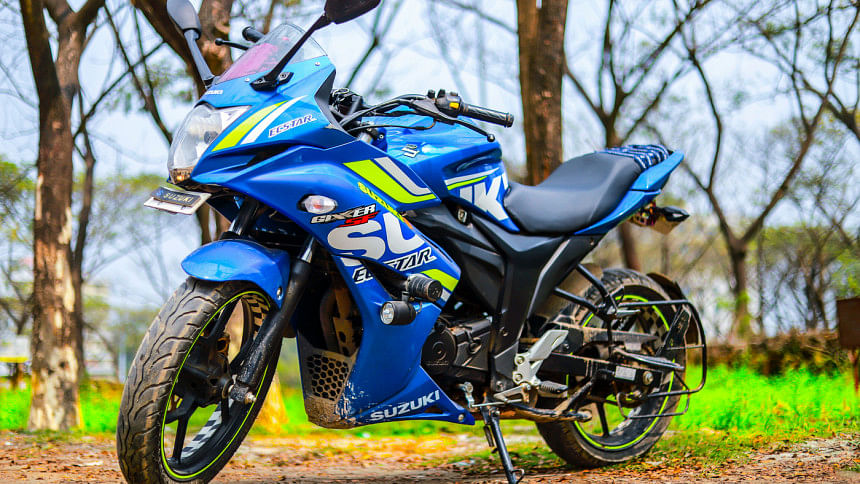Motorcycle maintenance tips for winter

Winter in Bangladesh, while not as severe as in many parts of the world, still poses unique challenges for motorcyclists. The colder temperatures, occasional fog, and increased moisture in the air can affect your motorcycle's performance and longevity.
For bikers who rely on their motorcycles for daily commutes or leisurely rides, proper winter maintenance is crucial, ensuring that your bike remains reliable and safe throughout the season.
Here are six essential motorcycle maintenance tips for winter, each with practical advice for keeping your ride in top shape.
Monitor tyre pressure and tread
Tires are one of the most critical aspects of motorcycle safety, especially during winter. Cold weather can cause the air in your tyres to contract, lowering tyre pressure. Under-inflated tyres reduce traction and can make riding on wet or foggy roads more dangerous.
Tip: During winter, check your tyre pressure regularly, particularly before morning rides when the temperature is at its lowest. Use a reliable tyre pressure gauge to ensure your tyres are inflated to the manufacturer's recommended pressure level.
Low tyre pressure increases the risk of skidding on slick roads, which is common during foggy mornings. If your tyres are worn or the tread is shallow, consider replacing them to improve traction.
Proper tyre maintenance not only ensures safety but also helps with fuel efficiency and reduces the chances of a tyre puncture during long rides.
Warm up the engine before riding
A cold engine is less efficient and can lead to increased wear if it's not properly warmed up before use. In winter, the engine oil thickens, and starting your bike without giving the engine time to reach its optimal operating temperature can cause friction between engine parts.
Tip: Start your motorcycle and let it idle for a few minutes before riding. This allows the oil to circulate and lubricate the engine components effectively. Warming up the engine ensures smoother gear shifts, better fuel combustion, and a longer engine life. Be patient, especially on those colder mornings—this small step can prevent long-term damage to your motorcycle's engine.
Keep your battery in check
A motorcycle battery can lose charge more quickly in colder temperatures. The chemical reactions within the battery slow down in the cold, which can make it harder to start your motorcycle, especially after it has been parked overnight. This is particularly true for older batteries, which may already be weakened.
Tip: If your motorcycle has difficulty starting, it could indicate that your battery needs attention. To prevent this, keep your battery fully charged by riding your bike regularly. For bikers who don't use their motorcycle daily, a trickle charger can be a good investment. It helps keep the battery at optimal levels when not in use for extended periods.
If your battery is more than two or three years old, it may be time to consider a replacement to avoid unexpected breakdowns. A well-maintained battery ensures that your motorcycle will start reliably throughout winter.
Switch to multi-grade engine oil
Engine oil is the lifeblood of your motorcycle, ensuring that all moving parts are well-lubricated. In winter, engine oil can become thicker, which makes it harder for the engine to start and increases wear during cold starts. Using the wrong type of oil can lead to sluggish performance and even engine damage in the long run.
Tip: Switch to multi-grade engine oil, such as 10W-30 or 15W-40, which is designed to perform well in both warm and cold temperatures. Multi-grade oils flow more easily when cold, providing better lubrication during engine start-up. This ensures smoother engine performance and reduces wear and tear.
Be sure to change your oil before the winter season begins to avoid any issues with thickening. Regularly check your oil levels, as low oil can cause serious damage to the engine. Keeping the right oil in your bike ensures that your engine runs smoothly, no matter how cold it gets.
Lubricate and clean the chain regularly
The chain is an often-overlooked part of motorcycle maintenance but is crucial for smooth riding. In winter, the combination of cold temperatures, moisture, and dirt can cause your motorcycle chain to rust and accumulate grime. A dry or rusty chain can lead to power loss and inefficient performance, making your ride jerky or noisy.
Tip: Regularly clean and lubricate your chain to prevent rust from forming. Start by cleaning off dirt and grime using a chain cleaner or a mild degreaser. Once the chain is clean, apply a good-quality chain lubricant to protect it from rust and ensure smooth operation. Be sure to wipe off any excess lubricant to avoid attracting more dirt.
Proper chain maintenance improves power transmission and extends the life of your chain and sprockets. This is especially important for riders who frequently commute or take long rides, as a well-maintained chain ensures a smoother and safer ride during the winter months.
Check the brakes and brake fluid
Winter weather, with its increased humidity and fog, can affect your motorcycle's braking system. Cold temperatures can make brake pads harder, reducing their grip on the brake discs. Additionally, moisture can cause rust on the brake components, which can reduce braking efficiency. Having well-functioning brakes is essential for safe riding, especially on wet and foggy roads.
Tip: Inspect your brake pads regularly to ensure they have sufficient material left. If they're worn out, replace them immediately to maintain optimal braking performance. Also, check the condition of your brake fluid. Brake fluid can absorb moisture over time, reducing its effectiveness. If your brake fluid appears cloudy or has not been changed in over a year, maybe it's time for a replacement.

 For all latest news, follow The Daily Star's Google News channel.
For all latest news, follow The Daily Star's Google News channel. 



Comments